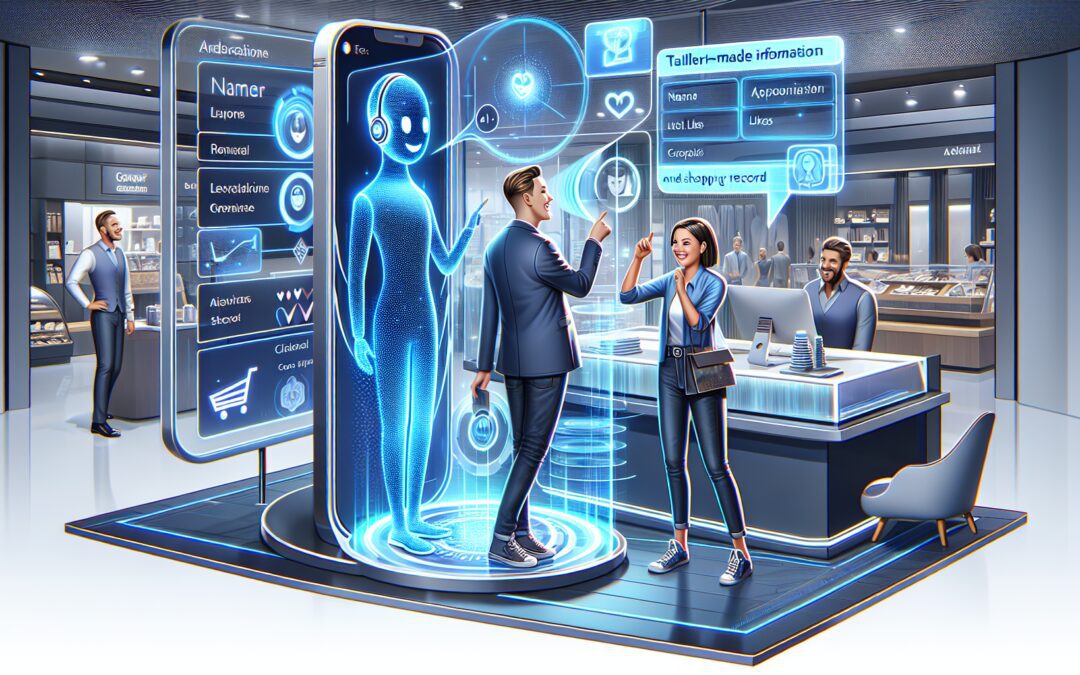In today’s digital age, businesses are realizing the significant value of fostering strong customer relationships. One of the most effective strategies to do so is through personalized interactions. Customized experiences not only help in retaining customers but also enhance their overall satisfaction with a brand. Here, we explore the various ways in which personalized interactions can be leveraged to elevate customer experience.
The Importance of Personalization
Personalization refers to tailoring services, products, and communications to individual customer preferences and behaviors. This nuanced approach contrasts with the one-size-fits-all strategy, allowing businesses to connect more authentically with their customers. Personalized interactions can lead to higher conversion rates, increased loyalty, and improved customer satisfaction.
The importance of personalization is supported by numerous studies. According to research by Accenture, 91% of consumers are more likely to shop with brands that provide relevant offers and recommendations. This demonstrates that customers value and respond positively to being acknowledged and understood on a personal level.
Utilizing Customer Data
The foundation of personalized interactions is robust customer data. Gathering and analyzing information about customer behaviors, preferences, and history can offer invaluable insights. Businesses can utilize tools such as Customer Relationship Management (CRM) systems, analytics software, and social media monitoring to collect and interpret this data.
For instance, e-commerce platforms can track purchasing behavior to recommend products that align with a customer’s interest. Similarly, streaming services can analyze viewing history to suggest content that would appeal to individual tastes. By leveraging customer data effectively, businesses can create a more tailored and engaging experience.
Segmentation and Targeted Marketing
Segmentation involves categorizing customers based on shared characteristics such as demographics, buying behavior, or psychographics. By dividing the customer base into specific segments, businesses can develop more targeted marketing strategies that resonate with each group.
For instance, a clothing retailer might segment its audience into categories like young adults, working professionals, and retirees. By crafting personalized marketing messages for each segment, the retailer can address the unique needs and preferences of each group, thereby increasing the likelihood of conversion and engagement.
Personalized Customer Service
Exceptional customer service is a cornerstone of a positive customer experience, and personalization can significantly enhance this aspect. Personalized customer service means addressing customers by their names, recalling previous interactions, and tailoring solutions to their specific issues.
For example, customer service representatives can use CRM data to access a customer’s purchase history and preferences before offering assistance. This level of personalization not only resolves issues more efficiently but also makes the customer feel valued and understood, fostering a stronger relationship with the brand.
Automated Personalization with AI
Artificial Intelligence (AI) plays a critical role in scaling personalized interactions. AI-powered tools such as chatbots, recommendation engines, and personalized email marketing can automate and enhance the personalization process.
Chatbots, for instance, can provide instant, personalized responses to customer inquiries based on data and previous interactions. Recommendation engines can analyze customer behavior in real-time to suggest relevant products or content, while personalized email marketing can dynamically tailor messages to individual recipients based on their preferences and past engagement.
Challenges and Considerations
While personalized interactions offer numerous benefits, there are also challenges and considerations to keep in mind. Privacy concerns are paramount, as customers expect businesses to handle their data responsibly and transparently. Companies must ensure they comply with data protection regulations such as GDPR and only collect and use data that customers have consented to share.
Additionally, there is a fine line between personalization and intrusion. Over-personalization or irrelevant recommendations can backfire, making customers feel uncomfortable rather than valued. Striking the right balance requires continuous testing, feedback, and adjustment.
Conclusion
Personalized interactions have the power to transform customer experiences by making them more relevant, engaging, and satisfying. Through the thoughtful application of customer data, segmentation, personalized customer service, and AI tools, businesses can create deeper connections with their customers. However, it is crucial to navigate challenges such as privacy concerns and avoid overstepping boundaries. When done right, personalization can lead to increased loyalty, higher conversion rates, and a more successful, customer-centric business model.


